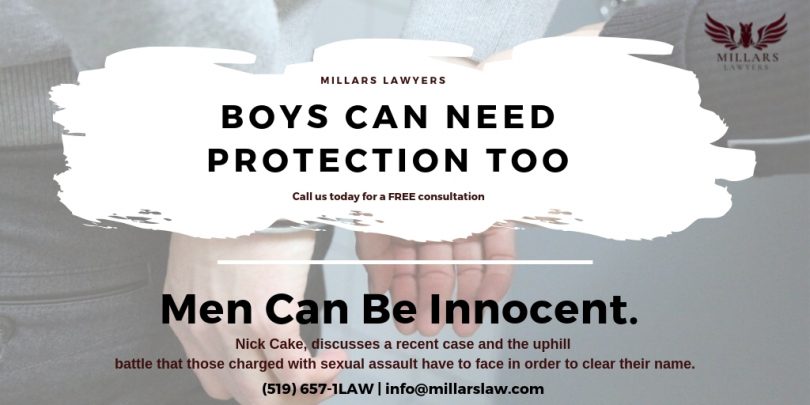Legally Speaking – Featuring Millars Law
It’s a sad reality that without alcohol many people involved in the criminal justice system would be looking for work – me included. Alcohol plays a major role in the majority of the files I work on, and a significant role in almost all other cases most criminal law firms carry.
Aside from the obvious impaired driving cases, alcohol plays a primary role in almost every sexual assault case that comes through my door. At the heart of most sexual assault cases is the concept of consent. Often, the prosecution will rely upon alcohol consumption and drunkenness to show that the complainant was incapable of consenting to sexual activity. Lately, though, it has come to my attention that this concept of drunkenness may be overinflated by the Court and applied to inappropriate factual scenarios.
Of course, no one is a proponent of sexual assault – the members of the Millars Law team included. However, we are proponents of the criminal justice process, which is bound by the concept that everyone is innocent until proven guilty. This idea forces the state (or prosecutors) to prove guilt, leaving all accused persons to not have to prove their innocence.
This concept is the cornerstone of the criminal justice system, and it exists in all cases – even sexual assault allegations. The law is clear when it comes to sexual assault allegations – no consent will equate to a conviction for sexual assault. The law is also clear that the participants to the sexual act must have the ability to make the conscious decision to move forward sexually, at all times, during the sexual interaction. What I think is misunderstood is how alcohol affects one’s ability to consent. At law, consent is fluid and must always be present. Clearly, if someone is incapacitated by alcohol, passed out, close to (or heavily) intoxicated, they would lack the ability to consent; and any sexual interaction with that person would result in a sexual assault conviction.
Drunkenness, on the other hand, does not automatically take away one’s ability to consent. Cases involving mere drunkenness are less clear cut. The law does allow for drunken consent, and being drunk is not the equivalent of an incapacity to consent. There are times, and I am sure many of us have had them, where ‘drunk you’ has made a decision that ‘sober you’ regrets in the morning. But making a drunken choice that one later regrets does not automatically make that person a victim of sexual assault. Drunken consent may be regrettable, or even hard to remember, but that doesn’t take away from the fact that it was given at the time. Further, courts in Ontario have held that the fact that a complainant does not remember engaging in the sexual act, or has a complete blackout of the time in question, is not the same as lacking the ability to consent.
Sexual assault cases are very serious matters – both for the complainant and the accused. The ramifications of a sexual assault allegation, whether ultimately proven or not, are long-lasting. Intoxicants like drugs or alcohol are controlled substances for a reason. They alter the mind and make people do things that they may not normally do. Engaging in acts that one would not do while sober does not automatically make them a victim. An allegation of sexual assault should never be taken lightly by anyone involved.
If you or someone you know has been accused of sexual assault, you need a lawyer who is not afraid to ask the tough questions and not afraid to attack the court of public opinion. Millars Lawyers should be your first call.
Contact Millars Law today when you Can’t Afford to Lose: 519-657-1LAW or Info@millarslaw.com.
By Nick Cake for Millars Law







